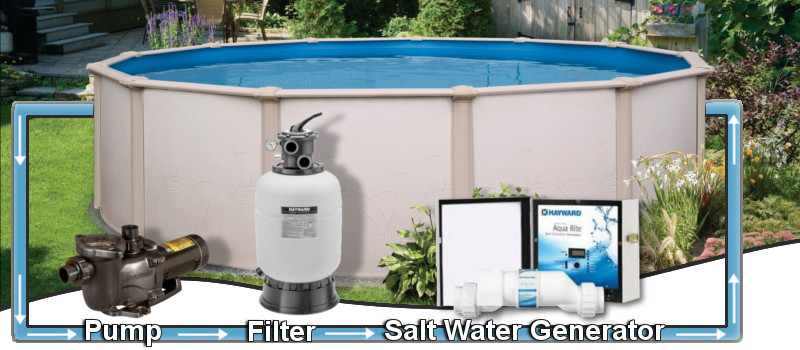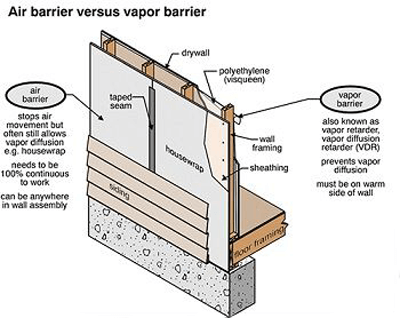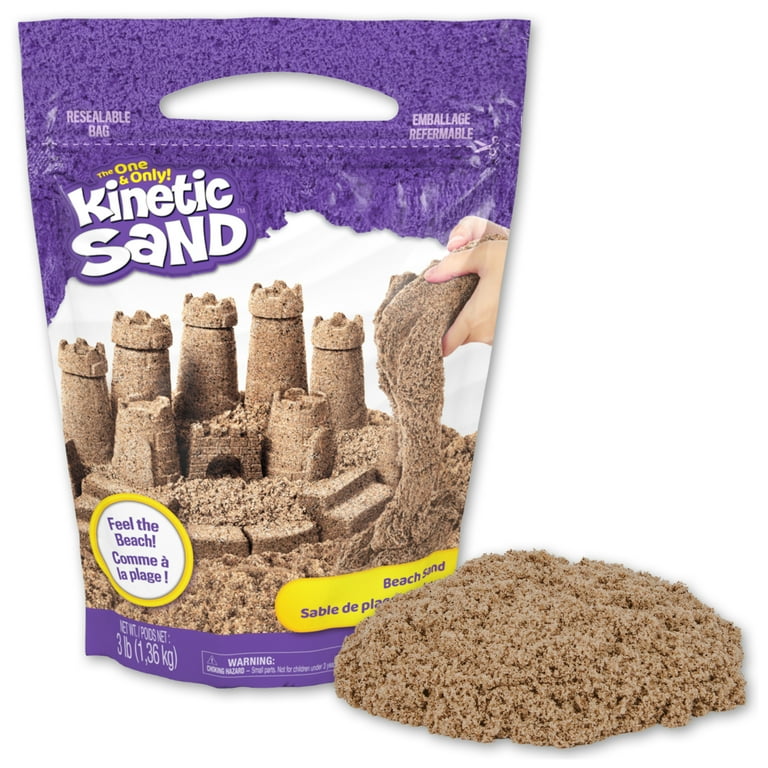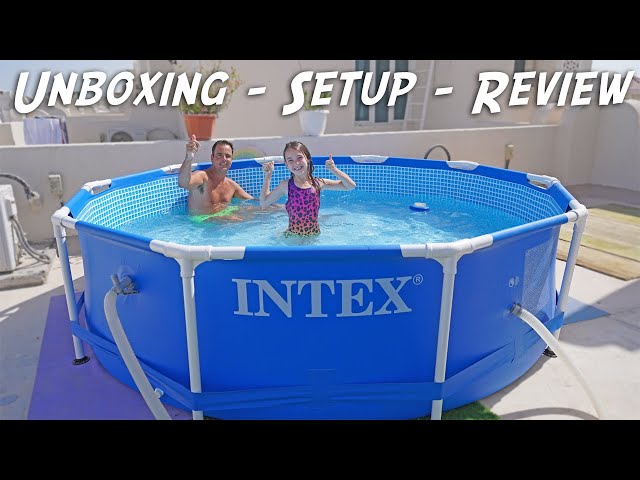Can You Put a Salt Water System in an above Ground Pool: Discover How
Are you wondering if you can upgrade your above ground pool with a salt water system? You’re not alone.
Many pool owners are exploring this option to enhance their swimming experience. Imagine diving into a pool that’s gentler on your skin and eyes, and easier to maintain. Sounds appealing, right? You might be thinking about the benefits, the installation process, and whether it’s worth the investment.
You’ll discover everything you need to know about integrating a salt water system into your above ground pool. Get ready to uncover the secrets that could transform your summer days into a luxurious escape. Keep reading to find out if this is the perfect solution for you and your pool.

Credit: www.thepoolfactory.com
Benefits Of Salt Water Systems
Salt water systems are gaining popularity for above ground pools. They offer several benefits that enhance your swimming experience. Switching to a salt water system brings improvements in health, cost, and maintenance.
Health And Skin Advantages
Salt water is gentler on the skin than chlorine. It reduces irritation and dryness, leaving skin smooth. The natural salt offers a softer feel to the water. Swimmers often notice fewer issues with allergies and sensitivities. Eyes are less likely to sting, allowing for a more enjoyable swim.
Cost-effectiveness
Initial installation may cost more, but it saves money long-term. You spend less on chemicals with a salt system. Chlorine needs regular replenishment, while salt maintains itself better. Over time, the savings on pool supplies add up significantly.
Maintenance Simplicity
Maintaining a salt water pool is easier than a chlorine one. The system automatically generates chlorine, reducing manual intervention. You handle fewer chemicals, making pool care simpler. Regular checks keep the system running smoothly, with less effort on your part.
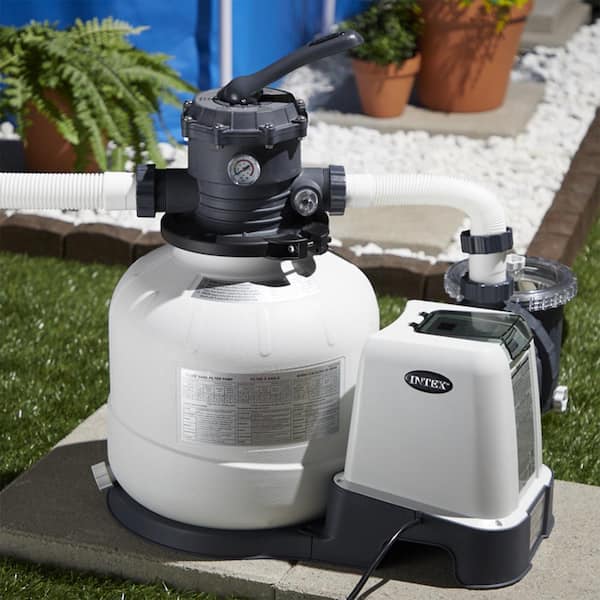
Credit: www.homedepot.com
Components Of Salt Water Systems
Thinking about installing a salt water system in your above ground pool? Understanding the components is crucial. These systems offer a cleaner, softer swimming experience. They eliminate the need for harsh chlorine tablets. Let’s dive into the main parts of a salt water system. Each plays a vital role in maintaining pool health.
Salt Cell
The salt cell is the heart of the system. It converts salt into chlorine through electrolysis. This process keeps your pool water clean and safe. The cell requires regular maintenance to function properly. Inspect it frequently for scale buildup. A well-maintained salt cell ensures efficient chlorine production. It’s essential to check and clean it often.
Control Panel
The control panel is the system’s brain. It allows you to adjust settings easily. You can control chlorine levels and monitor system performance. The interface is user-friendly, making operation simple. It displays alerts for maintenance needs. Regular checks help maintain optimal settings. The control panel simplifies pool management.
Flow Sensor
The flow sensor is a crucial component. It detects water movement through the system. Proper water flow is necessary for effective chlorine generation. The sensor alerts you to low flow conditions. This helps prevent damage to the salt cell. Ensure the sensor is functioning correctly. Regular inspection is key for smooth operation.
Choosing The Right System
Installing a salt water system in an above ground pool is possible. This system offers a gentle swimming experience and requires less maintenance. Consider pool size and compatibility when choosing the right system.
Choosing the right salt water system for your above ground pool can transform your swimming experience. It’s not just about buying the first system you find online. You need to consider several factors to ensure your investment pays off. Whether you’re a seasoned pool owner or a first-timer, understanding these factors can make all the difference.Pool Size Considerations
Before purchasing a salt water system, determine the size of your pool. Systems are designed to handle specific pool volumes. If your pool holds 10,000 gallons, but the system is only rated for 7,000, it won’t work efficiently. On a hot summer day, this could mean murky water instead of the sparkling oasis you envisioned. Imagine the frustration of swimming in a pool that feels like a bathtub with too much soap. That’s what happens when the system doesn’t match the pool size. Always check the specifications and ensure your system can handle your pool’s capacity.Budget And Brand Options
Budget plays a crucial role in your decision-making process. You don’t want to empty your wallet, but you also don’t want a system that fails after one season. Look for reputable brands with good reviews. I’ve learned the hard way that opting for the cheapest option often means more headaches later. A friend of mine splurged on a reliable brand and enjoyed hassle-free summers, while I struggled with constant repairs. Make sure to balance cost with quality to avoid unnecessary expenses.Installation Complexity
Consider how much effort you’re willing to put into installing the system. Some systems are plug-and-play, perfect for those who aren’t particularly handy. Others might require professional installation, adding to your expenses. Are you ready to roll up your sleeves and dive into a DIY project? Or would you prefer to have someone else handle the nitty-gritty? Think about your comfort level with installation before making a purchase. A system that seems perfect on paper might not be the right choice if the setup is beyond your skill set. Choosing the right salt water system isn’t just about the immediate purchase. It’s about enhancing your entire pool experience. By considering pool size, budget, and installation complexity, you can make a choice that keeps your pool pristine and your summers unforgettable.
Credit: www.amazon.ca
Installation Steps
Installing a salt water system in an above ground pool enhances swimming. It provides a more natural and comfortable experience. This process involves several key steps. Each step is crucial for the system’s efficiency and longevity.
Preparing The Pool
Begin with cleaning the pool thoroughly. Remove debris and algae. Ensure the water chemistry is balanced. Check the pH level and adjust if necessary. This ensures optimal performance of the salt system. Proper preparation prevents future issues.
Installing The Salt Cell
Next, locate the filter system of the pool. Attach the salt cell to the return line. Secure it firmly to prevent leaks. Connect the cell to the power source. Ensure all connections are tight and secure. This step is vital for the system’s operation.
Calibrating The Control Panel
Finally, calibrate the control panel. Set the desired chlorine levels. Adjust settings to match pool size. Monitor the display for any errors. Regular checks ensure consistent performance. Calibration keeps the system running smoothly.
Maintenance Tips
Maintaining a saltwater system in your above-ground pool is crucial for ensuring a refreshing swim throughout the season. While saltwater pools are known for their lower maintenance compared to traditional chlorine pools, they still require regular attention to keep them at their best. By understanding the essentials of cleaning, monitoring salt levels, and seasonal maintenance, you can keep your pool crystal clear and ready for summer fun. Let’s dive into some practical tips that will help you manage your pool’s saltwater system effectively.
Regular Cleaning
Keeping your pool clean is the foundation of its health. Regularly brush the walls and floor to prevent algae buildup. Don’t forget to clean your pool’s filter system weekly. This ensures that the water circulates properly and remains free of debris. You might be surprised at how much cleaner the pool stays with just a little regular attention.
Consider having a cleaning schedule. Mark your calendar with weekly reminders. This way, you won’t fall behind on necessary tasks. Skipping a cleaning session can lead to murky water and unwanted maintenance issues down the line. Isn’t it better to spend a little time now than a lot of time later?
Salt Level Monitoring
Salt levels are crucial for your pool’s health. Check them every week using a reliable test kit. Too much salt can be as problematic as too little. Aim for the recommended salt concentration, usually between 2500 and 4000 ppm. Adjust as necessary to maintain balance.
Have you ever noticed a decline in water quality without knowing why? Often, it’s a simple salt imbalance. Regular checks prevent surprises and keep your pool inviting. Proper salt levels also ensure the chlorine generator works efficiently. It’s worth the few minutes it takes to test!
Seasonal Maintenance
As seasons change, so do your pool’s needs. Before closing your pool for winter, ensure all equipment is thoroughly cleaned and stored properly. Drain the water below skimmer level to prevent freeze damage. Cover the pool to protect it from debris.
When spring arrives, do a thorough check of your pool system. Inspect the saltwater generator and filters for any damage. Refill your pool and check the salt levels before starting it up. Seasonal maintenance keeps your pool in top shape and avoids costly repairs. Isn’t it reassuring to know that you’re ready for summer right from the start?
Common Challenges
Installing a saltwater system in an above-ground pool presents challenges like compatibility with existing equipment. Maintenance and cost considerations are crucial. Adapting the pool structure to handle salt can also be a concern.
When considering a salt water system for your above ground pool, there are several common challenges you might face. Understanding these issues can help you maintain your pool more efficiently and extend the life of your system. Let’s dive into these challenges and explore some practical solutions.Dealing With Scale Build-up
Scale build-up is a frequent issue with salt water systems. The white, chalky deposits can make your pool look unsightly and feel rough. To manage this, regularly check the salt cell and clean it with a mild acid solution. Ignoring scale can lead to more serious problems. It can reduce the efficiency of your system and cause permanent damage. Make it a habit to inspect for scale and address it promptly.Addressing System Malfunctions
System malfunctions can be frustrating. Imagine planning a pool party, only to find your salt water system not working. Regular maintenance checks can prevent many of these issues. Keep an eye on the control panel for error messages. These alerts can guide you in troubleshooting problems early. Also, ensure connections are tight and free from corrosion.Balancing Pool Chemistry
Balancing pool chemistry in a salt water system is crucial. While salt water pools generally require less chemical adjustment, they are not maintenance-free. Regularly test the water for pH, chlorine, and alkalinity levels. You might find that the pH tends to rise more often. This requires you to add acid to keep it in check. Maintaining proper chemical balance ensures your pool remains clean and safe for swimming. Have you ever found yourself puzzled over these challenges? Share your experiences in the comments below. Your insights could help fellow pool owners navigate these common hurdles.Safety Considerations
Installing a salt water system in an above ground pool can enhance your swimming experience. While it offers benefits, safety is crucial. Prioritize safety to ensure everyone enjoys a secure environment. Consider these key safety aspects before installation.
Electrical Safety
Water and electricity can be a dangerous mix. Ensure all electrical components are properly grounded. Use weatherproof outlets to prevent water damage. Check cords and connections regularly for wear or damage.
Hire a licensed electrician for installation. Avoid doing it yourself. This ensures professional handling of electrical components.
Proper Ventilation
Salt water systems can produce gases. Make sure your pool area is well-ventilated. This helps disperse any fumes or gases safely.
Avoid enclosing the pool equipment in tight spaces. Open areas are best for allowing airflow. Regularly check for any buildup of fumes.
Child Safety Precautions
Pools attract children, who may not understand the dangers. Install fences or barriers around the pool. This prevents unsupervised access.
Educate children about pool safety rules. Never leave them unsupervised near the pool. Use pool covers to enhance safety when not in use.
Frequently Asked Questions
Can You Use A Salt Water System In Above Ground Pools?
Yes, you can use a salt water system in above ground pools. These systems are compatible and can enhance water quality. They provide a more enjoyable swimming experience by reducing chlorine odor and irritation. Ensure your pool liner and equipment are suitable for salt water systems.
What Are The Benefits Of Salt Water Systems?
Salt water systems offer several benefits, including reduced chlorine levels and minimal maintenance. They provide softer water, which is gentler on skin and eyes. Salt water pools also require less frequent chemical adjustments, saving you time and money. Overall, they create a more comfortable swimming environment.
How Do I Install A Salt Water System?
To install a salt water system, follow the manufacturer’s instructions. First, choose the right system size for your pool. Connect the system to your pool’s filtration system. Then, add the required amount of salt. Finally, test and adjust the system to ensure proper chlorine levels.
Is A Salt Water System Cost-effective?
Yes, salt water systems can be cost-effective in the long run. Initial installation costs might be higher than traditional systems. However, they reduce the need for frequent chemical purchases. Maintenance is simpler, saving you time and effort. Over time, the benefits outweigh the initial investment.
Conclusion
Adding a salt water system to an above ground pool is possible. It offers many benefits. These include softer water and fewer chemicals. Installation is straightforward with the right tools. It improves pool maintenance significantly. Costs may vary, but it’s often worth it.
Proper research helps in making informed choices. Consider the pool size and system compatibility. Enjoy a cleaner swimming experience. Salt water systems provide peace of mind. They are an investment in comfort and convenience. Make your pool time more enjoyable today.
